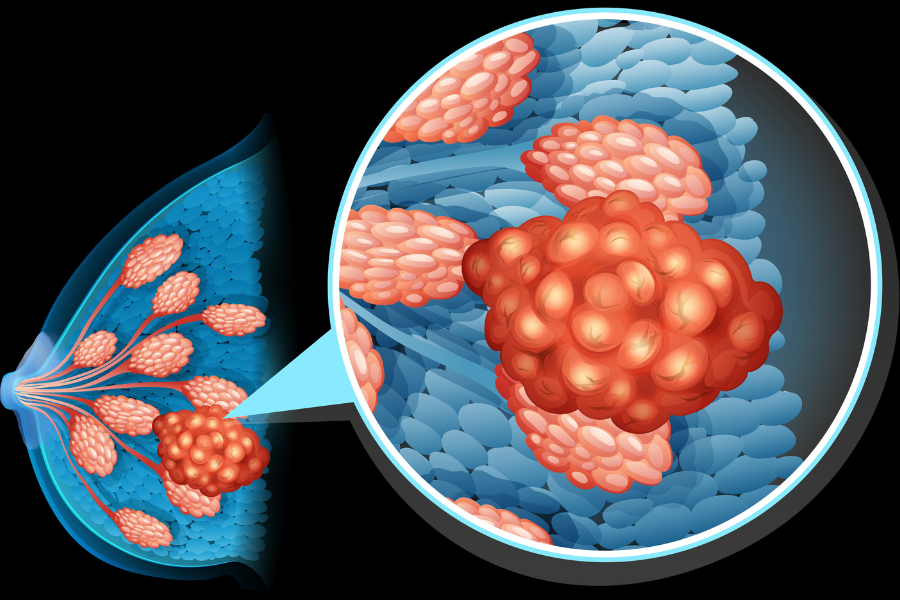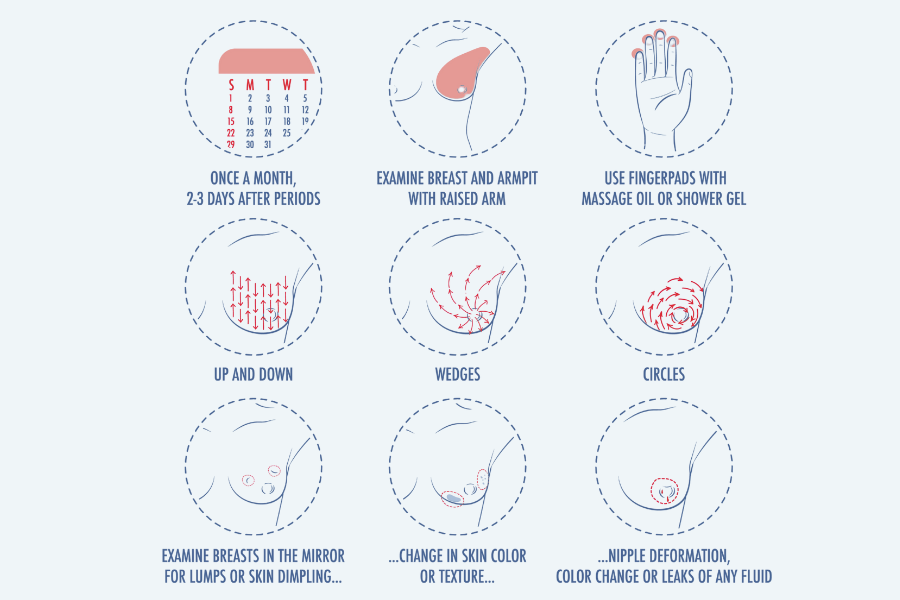Breast Cancer

Understanding Breast Cancer
Breast cancer happens when cells in the breast grow in a way that is not normal. It is the most common cancer in women, but men can get it too. When found early, breast cancer can be treated successfully.
Breast cancer is a disease that starts in the breast. It can begin in one or both breasts.
Breasts have three main parts:
Lobules – make milk
Ducts – carry milk to the nipple
Connective tissue – holds everything together
Most breast cancers start in the ducts or lobules. If not treated, it can spread to other parts of the body.
Key Facts About Breast Cancer
- About 1 out of 8 women will get breast cancer.
- It is the second most common cancer that causes death in women.
- If caught early, there is a 99% chance of survival.
- Men can get breast cancer, too, but it's rare. About 1 in 726 men in the U.S. will get it.
- Over 4 million breast cancer survivors live in the U.S. African American women and men have the lowest 5-year survival rate.
Most Common Types of Breast Cancer
- Ductal Carcinoma in Situ: A very early cancer in the ducts that hasn’t spread. About 1 in 5 breast cancer cases.
- Invasive Ductal Carcinoma: It is the most common type. About 8 out of 10 invasive breast cancers are invasive ductal carcinomas, which means the cancer started in the milk ducts and spread to nearby breast tissue
- Invasive Lobular Carcinoma: About 1 out of 10 invasive breast cancers is an invasive lobular carcinoma. The cancer starts in the lobules and can spread to other parts of the body.
Signs to Watch For
Tell a doctor if you notice:
- A new lump in the breast or underarm.
- Changes in the size or shape of your breasts.
- Red or thick skin on the breast.
- Pain that doesn’t go away.
- Nipple pulling in or nipple pain.
- Nipple fluid, that isn’t milk (may have blood).
Illustration showing how to do a breast self-exam at home

Risk Factors
Risk Factors You Can Change:
- Being overweight after menopause
- Not being active
- Drinking alcohol often
- Taking hormone therapy after menopause
Risk Factors You Cannot Change:
- Being a woman (but men can get it too)
- Getting older (in most cases after age 50)
- Family history (mother, sister, daughter with breast cancer)
- Inherited genes (like BRCA1 or BRCA2)
- Early periods (before age 12) or late menopause (after age 55)
- Past radiation treatment
Breast Cancer Screening
Screening matters because it helps find breast cancer before it causes symptoms. The earlier cancer is found, the easier it is to treat.
- Mammogram: A special X-ray of the breast that can find cancer early. Recommended every 1-2 years starting at age 40.
- Breast MRI: Used for high-risk women with family history or genetic risk.
- Clinical breast exam: An exam by a doctor or nurse, who uses his or her hands to feel for lumps or other changes.
- Self-breast exam: Checking your own breasts for changes (best to do once a month). Can help you notice symptoms such as lumps, pain, or changes in size that may be of concern.
Women who are 40 to 74 years old and are at average risk for breast cancer should get a mammogram every 2 years. If you are at a higher risk or have special circumstances, please discuss your screening options with your doctor.
- Being physically active. Exercise helps lower the risk of breast cancer.
- Eat a healthy diet rich in plant-based nutrients like fruits, vegetables, and whole grains.
- Limit alcohol use. Drinking fewer alcoholic beverages can reduce your risk.
- Know your family history. If breast cancer runs in your family, talk to your doctor about screening options.
- Avoid smoking/tobacco products. Smoking increases the risk of many cancers.
- Get regular health screening, including mammograms. Early detection saves lives.
- Limit hormone therapy after menopause.
ASK UNMC! Why do I need to worry about breast cancer, routine mammograms and breast self-exams?
Resources
There are many reliable online resources to help you learn more about breast cancer. Whether you are looking for screening information, preventative measures, or other information about breast cancer, our health educators are here to provide you with the support and guidance you need. Send your queries to coe@unmc.edu.